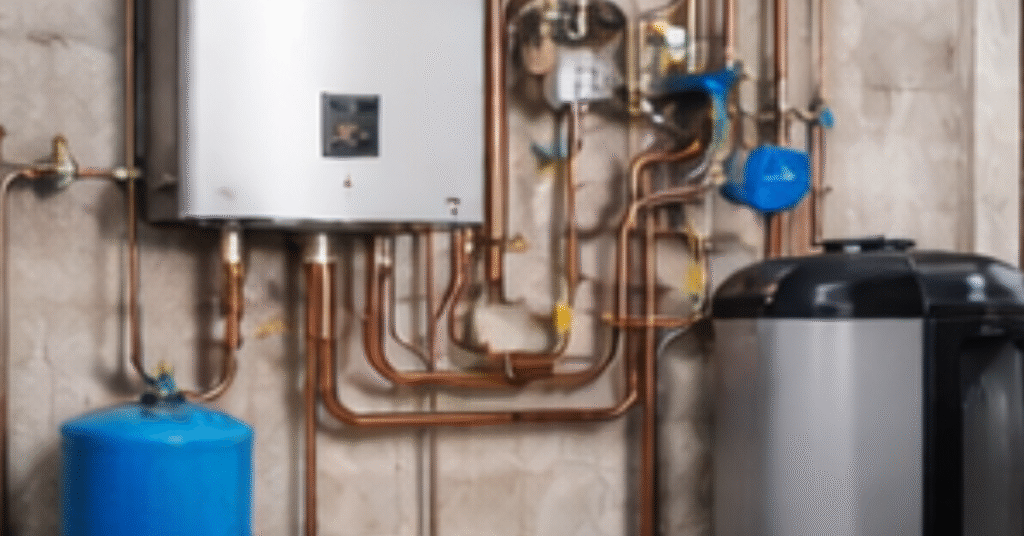
Seattle homeowners know the city’s unique weather, aging infrastructure, and hilly terrain can create unexpected plumbing challenges. But when an emergency hits—like a burst pipe at 2 AM or a backed-up sewer drain—how do you know whether to call a plumber right now, or if it can wait until morning?
This guide will help you make smart, timely decisions, potentially saving you thousands in damage (and a sleepless night).
🚨 Plumbing Emergencies That Require an Immediate Call
1. Burst Pipes
If a pipe bursts—especially during a cold Seattle winter—it can flood your home fast. Water can soak into drywall, flooring, and electrical systems in minutes.
What to do:
- Shut off your main water valve immediately.
- Call a licensed plumber right away.
💡 Source: According to the Federal Emergency Management Agency (FEMA), just one inch of standing water in a home can cause over $25,000 in damage.
📚 FEMA Flood Facts
2. No Running Water
If your faucets suddenly run dry, it could indicate a frozen pipe, broken main line, or municipal water issue.
Action Steps:
- Check with Seattle Public Utilities for local outages: https://www.seattle.gov/utilities
- If your neighborhood has water, but you don’t—call a plumber now.
3. Sewage Backup or Foul Odors
A strong sewage smell or visible backup in your drains is a sign of a blocked or broken sewer line—a serious health hazard.
🚱 Raw sewage carries pathogens and bacteria, and the CDC warns it can cause serious illness upon exposure.
📚 CDC – Flood and Sewage Guidelines
Don’t wait. This is a full-blown emergency that needs professional intervention immediately.
4. Water Heater Leaks or Carbon Monoxide Risk
A leaking water heater may lead to gas leaks or carbon monoxide exposure if left unchecked.
Warning Signs:
- Metallic smell
- Pooled water near heater base
- Pilot light issues
⚠️ The CDC states that carbon monoxide exposure kills more than 400 Americans per year and is often linked to faulty appliances.
📚 CDC Carbon Monoxide Safety
🕐 Issues That Can Usually Wait Until Morning
1. Slow Draining Sink or Shower
While annoying, a slow drain typically doesn’t require emergency service. Try using a plunger or drain snake, and avoid chemical cleaners.
🛑 If multiple drains are affected or you smell sewage, it’s no longer a “wait” situation—call now.
2. Low Water Pressure
Low pressure may be due to municipal supply issues or sediment buildup. Check other faucets. If it’s isolated to one fixture, it can wait.
Next steps: Clean the aerator or schedule a plumber during normal hours.
3. Minor Leaks (Drips, Not Flooding)
A slow drip under a sink or from a faucet can typically wait. Place a bowl or towel under the leak and turn off the shutoff valve to reduce pressure.
🧠 Pro tip: Take photos to monitor changes overnight.
4. Toilet Won’t Flush (But Isn’t Overflowing)
Use a second bathroom if available. If it’s the only toilet and plunging doesn’t help—call first thing in the morning.
✅ Quick Checklist: When to Call NOW
| Symptom | Call Now? |
|---|---|
| Gushing water / burst pipe | ✅ Yes |
| Sewage backup or foul odors | ✅ Yes |
| No water in home (not utility-wide) | ✅ Yes |
| Gas smell or carbon monoxide alert | ✅ Yes |
| Water heater leaking or not heating | ✅ Usually |
| Clogged toilet (overflowing) | ✅ Yes |
| Minor leak or slow drip | ❌ Can wait |
| One slow drain | ❌ Can wait |
👨🔧 Final Word: Don’t Guess in an Emergency, Contact Einstein Pros Immediately!
Even if you’re unsure, it’s better to get expert advice than to risk water damage, mold, or health hazards. Seattle’s climate and older housing stock often mean plumbing issues escalate faster than expected.
🔗 Contact Einstein Pros Seattle Today
We’re available for both emergency plumbing and scheduled maintenance.
Einstein Pros – Your Local Seattle Plumbing Experts
